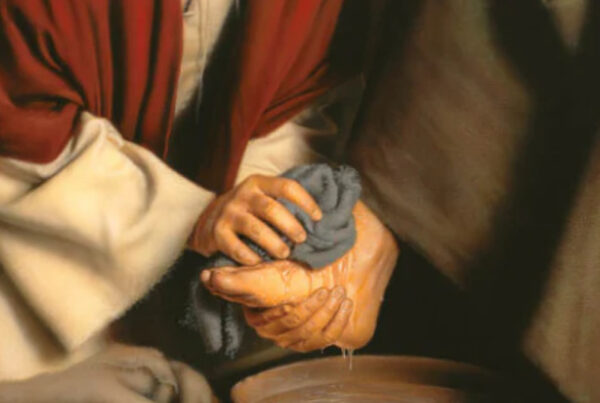The Book of James
Chapter 5
Now listen, you rich people, weep and wail because of the misery that is coming on you. Your wealth has rotted, and moths have eaten your clothes. Your gold and silver are corroded. Their corrosion will testify against you and eat your flesh like fire. You have hoarded wealth in the last days. Look! The wages you failed to pay the workers who mowed your fields are crying out against you. The cries of the harvesters have reached the ears of the Lord Almighty. You have lived on earth in luxury and self-indulgence. You have fattened yourselves in the day of slaughter. You have condemned and murdered the innocent one, who was not opposing you.
Be patient, then, brothers and sisters, until the Lord’s coming. See how the farmer waits for the land to yield its valuable crop, patiently waiting for the autumn and spring rains. You too, be patient and stand firm, because the Lord’s coming is near. Don’t grumble against one another, brothers and sisters, or you will be judged. The Judge is standing at the door!
Brothers and sisters, as an example of patience in the face of suffering, take the prophets who spoke in the name of the Lord. As you know, we count as blessed those who have persevered. You have heard of Job’s perseverance and have seen what the Lord finally brought about. The Lord is full of compassion and mercy.
Above all, my brothers and sisters, do not swear—not by heaven or by earth or by anything else. All you need to say is a simple “Yes” or “No.” Otherwise you will be condemned.
Is anyone among you in trouble? Let them pray. Is anyone happy? Let them sing songs of praise. Is anyone among you sick? Let them call the elders of the church to pray over them and anoint them with oil in the name of the Lord. And the prayer offered in faith will make the sick person well; the Lord will raise them up. If they have sinned, they will be forgiven. Therefore confess your sins to each other and pray for each other so that you may be healed. The prayer of a righteous person is powerful and effective.
Elijah was a human being, even as we are. He prayed earnestly that it would not rain, and it did not rain on the land for three and a half years. Again he prayed, and the heavens gave rain, and the earth produced its crops.
My brothers and sisters, if one of you should wander from the truth and someone should bring that person back, remember this: Whoever turns a sinner from the error of their way will save them from death and cover over a multitude of sins.
Devotional:
The entire book of James is full of stark vivid imagery. He sometimes cajoles, sometimes threatens, but he always exhorts us to refrain from what is evil and to act in the right ways. He doesn’t dwell much on the supernatural, but concentrates on human action. That is until he reaches the final passages where he waxes eloquent on the power of prayer.
Verse 13 reads: “Is anyone among you in trouble?” He should pray. “Is anyone happy?” He should sing praises. This is a common feature in many church services and well it should be. In verses 14-15 James refers to the importance of prayer during times of physical, mental, emotional, and spiritual sickness and weakness. In verse 16a James called us to pray for each other. Then in verse 16b, we have before us perhaps one of the strongest encouragements to prayer found in the Scripture. We see here that prayer is powerful to change our lives and to change the situations we find ourselves in. And then in verses 17-18 James uses the example of Elijah to remind us of the power and effectiveness of prayer.
The power of prayer is manifest in our daily lives. James tells us that the “Prayer of a good person has a powerful effect.” We must pray, but not be selfish in our prayers. We must get closer to God by communication with him. For in the final analysis this is what prayer is all about. It is not an invoice to heaven to acquire material wealth; it is not a fawning, groveling missive to a great power. It is a communication with our creator that helps us to become better human beings.
And James practiced what he preached. Tradition tells us that he was given a very unusual nickname by the Christians in the early church. They called him “Old Camel Knees.” The Early Church historian, Eusebius, wrote the following account: “James was often in the habit of entering the temple alone and was often found on bent knees interceding for the people, so much so that his knees became as hard as a camel’s knees in consequence of his habitual kneeling before God.”
And so James sums up his letter by reminding us “Whoever turns a sinner back from his wrong way will save that sinner’s soul from death and bring about the forgiveness of many sins.” Thus we strive not only to make ourselves better, but also strive to make the world a better place, one person at a time.
Questions to ponder:
- Do you have any doubts that the God of the Universe wants to hear your prayers and petitions?
- If you do have any disbelief, are you willing to talk with another believer about these doubts?



